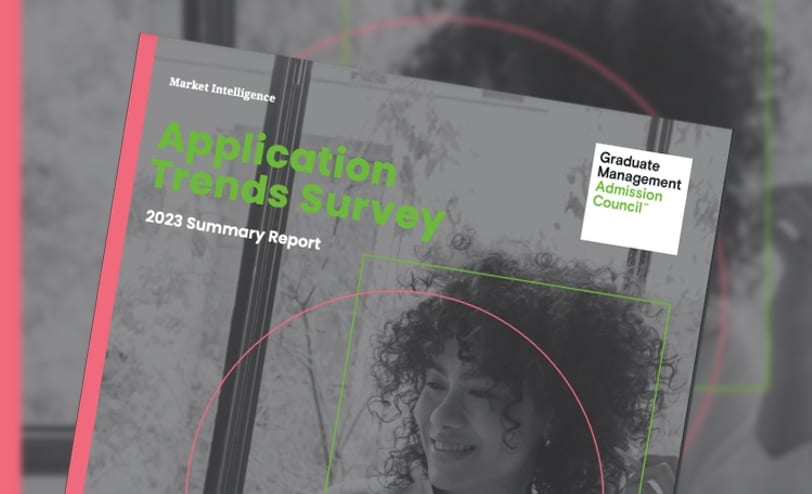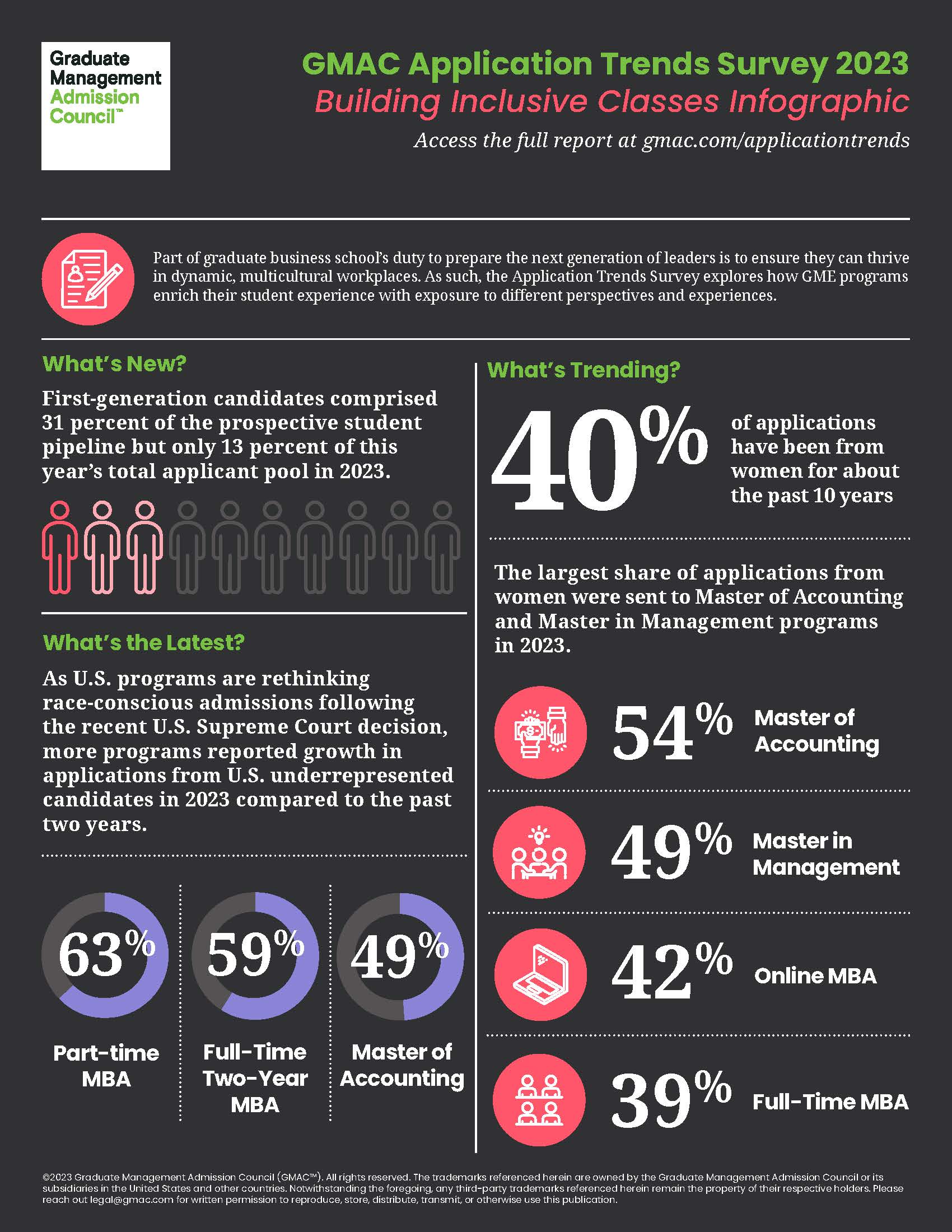Applications to MBA and other graduate business school programs around the world declined by about five per cent in 2023 with students continuing to bypass full-time-, in-person programs for more flexible offerings.
While the new report by the Graduate Management Admission Council (GMAC) shows a decline in applications overall, the decline was not felt evenly, with many programs reporting growth.
In 2023, the absolute total of MBA applications declined five percent. While this is the second year in a row that total MBA applications declined after a small bump in 2021, the dip is slightly less than what MBA programs experienced last year.
Delivery type appears to be a big factor in which MBA programs were most likely to report application growth.
Sixty percent or more of MBA programs offering online, hybrid, weekend, and evening delivery modes reported growth in their program’s applications . This compares to just 41 percent of full-time, in-person MBA programs that reported application growth.
“While the global total of MBA applications has dropped somewhat, more flexible MBA programs appear to be faring better than traditional full-time MBAs,” the report said.
“Likewise, mid-sized MBA programs are more likely to have seen growth in applications than larger or smaller programs. Like all GME programs, MBA programs at business schools ranked 1-100 by the Financial Times or U.S. News & World Report were less likely to report program growth than lower-ranked and unranked programs.
“Taken together, this could indicate some MBA applicants may not aspire to the most competitive programs if they can add some flexibility to their studies.”
GMAC said many candidates were still interested in more traditional, competitive full-time programs, but online, hybrid, or evening options were much more likely to report application growth.
“Applicants to graduate business school appear to be recalculating their investment, with more candidates willing to trade traditional in-person experiences for opportunities to
complete their studies according to their schedule,” said Joy Jones, CEO of GMAC.
“As post-pandemic attitudes toward work continue shifting and preferences for educational offerings continue evolving, the business school community as a whole is quickly adapting.
“From degreed programs to new certificates, concentrations, executive education, and micro-credentials, there is a wealth of options appealing to a wide spectrum of candidates in different stages of career and life.
“It serves as a testament to how business schools rise to the challenge to meet the needs of today’s business school aspirants who will undoubtedly benefit from graduate business education.”
U.S. and regional trends reflect shifts in international and domestic applications.
While flexibility in delivery methods played an important role in driving the global application trends, in the United States, the international and domestic compositions of program volume turned out to be the key drivers behind the growth seen among their GME programs. A
After several challenging years with the domestic pipeline – especially after applications levelled off following the pandemic – more US programs reported growth in domestic applications than declines in 2023.
In fact, besides the increase seen in 2020 related to the pandemic, the number of U.S. programs reporting application growth reached a decade-long high in domestic applications.
While more than half of the programs in the U.S. experienced growth despite a small dip in overall applications, their counterparts in Europe, Asia, and the Pacific Islands were not as fortunate.
Most European programs have faced declining applications over the past three years, with a significant drop (13 percent) in total international applications in 2023. Similarly, programs in Asia and the Pacific Islands have experienced two years of relative application declines, but with a pronounced drop (8 percent) in total domestic applications in 2023.
Applications among women continue to stagnate across degree types and regions.
Over the past five years, the share of female applicants in the U.S., Europe, Asia, the Pacific Islands, Canada and Latin America has hovered around two-fifths.
Even though GMAC’s Prospective Students Survey indicates that women tend to be more interested in flexible, online, and hybrid programs, the share of women applying to online, hybrid, weekend, and evening programs is still roughly two-fifths.
One silver lining lies in the share of women applicants in the executive MBA. While it is comparatively smallest at 32 percent, most of these programs saw growth in their applications from female candidates in 2023.
“It is encouraging to see more women in executive positions pursue advanced business education that could help strengthen them as leaders in the workplace,” said Ana María Zermeño Padilla, director of academic experience and operations of EGADE Business School at Tecnológico de Monterrey and a GMAC Board member.
“There is still much work to be done to appeal to women, especially those earlier in their careers, to take advantage of what graduate business degrees, particularly those with online and flexible modules, could offer.”








